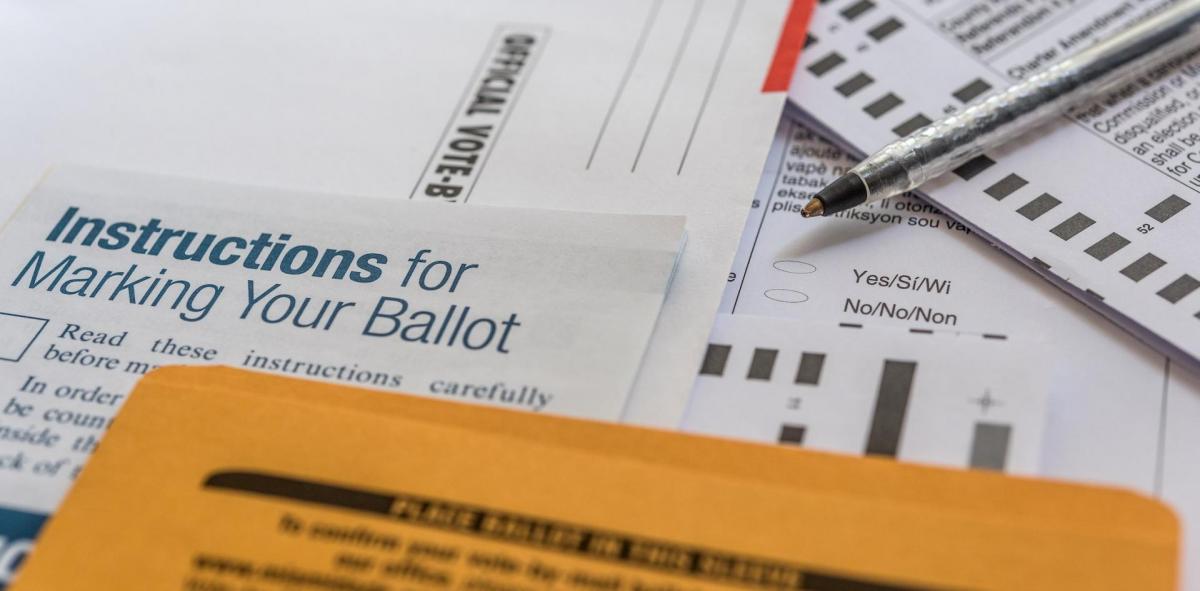More bills pre-filed or carried over to 2025 legislative sessions would adopt ranked-choice voting (RCV) than would ban it, but their path to becoming law remains uncertain.
Ranked-choice voting was one of the hottest election policy topics of 2024, both in state legislative sessions and on voters’ ballots. Six states banned RCV, more than in any other year. Five state legislatures passed bills to ban the electoral system and Missouri voters approved a legislatively referred constitutional amendment at the November election. Republicans controlled the state legislature in each of these states when the legislation passed. This doubled the number of bans passed in 2023 and brought the total number of states with bans to 11, ten of which had Republican trifectas at the time of adoption.
Elsewhere on ballots this November, D.C. voters approved the system for elections in the nation's capital and Alaska voters opted to keep their state’s use of RCV. But in four other states voters rejected statewide ballot measures that would have adopted RCV for some elections.
While legislation introduced to adopt RCV has outnumbered bans or repeals since the beginning of 2023, one state has passed a bill to adopt RCV in that time — a legislative approval of a local charter amendment in Vermont — while nine states have banned ranked voting outright.
As of Dec. 17, 2024, eight bills related to RCV had been pre-filed or carried over, six in Texas and two in Virginia.
In Texas, a Republican trifecta, Democrats have pre-filed five bills, all of which would allow or require RCV for certain elections:
- SB 341 would implement preferential voting for any election that requires a majority to win
- HB 1406 would replace primary runoff elections where currently required by state law with preferential voting in these primaries
- SB 342 and HB 540 are companion bills that would allow municipalities or independent school districts to adopt preferential voting for partisan elections in the jurisdiction.
The fifth Democratic bill, HB 465, would include an optional runoff election ballot with the regular general election ballot for early mail voters in an election where there may be a runoff. The voter does not have to complete the runoff ballot, but may rank their preference of candidates in the case of a runoff on the separate ballot and submit it alongside the regular general election ballot. The preferential ballot would not be opened or counted unless and until it is determined the election requires a runoff.
The last pre-filed bill in Texas is the only Republican-sponsored bill, HB 817. The legislation would ban the use of preferential voting in elections requiring a majority vote.
In Virginia, which has a divided government, two RCV bills are carried over to the 2025 legislative session. Both bills would allow new uses of RCV and are sponsored by Democrats:
- SB 270 would allow political parties to use RCV for presidential primaries and establishes rules and procedures for the implementation of the system, including requiring that election officials release round-by-round results by 11:59pm on the night of the election. The bill passed the state senate along party lines, with all Democrats voting “yes”, on Feb. 14, 2024.
- HB 658 would allow any local jurisdiction in the state to adopt RCV for local and constitutional offices.
In 2024, Gov. Glenn Youngkin (R) vetoed one bill related to RCV passed by the Democratic-controlled legislature, SB 428. The bill would have established new counting, tabulation, and certification procedures for ranked-choice voting (RCV) elections in Virginia. Click here to read more about that legislation.
All told, bills authorizing new uses of RCV outnumber bans in early 2025 legislation, but less than 1% of those types of bills became law in 2023 and 2024. There is just one ban among early legislation, but 14.3% of these bills became law during the same period. That one bill is also in a state with a Republican trifecta, Texas, and these states account for 90.1% of all adopted bans.
Heading into 2025 there will be 13 states with Republican trifectas that do not have any laws related to RCV, and six of these states' legislatures considered bans in 2024.
Additional reading:


